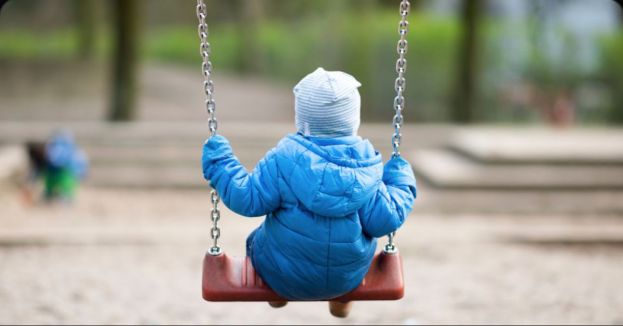Researchers from Columbia University have indicated that having three or more children can add a vast 6.2 years of aging to parents.
The reason for the conclusions remains unclear, although the researchers imply that having additional children's stress and financial burden could hurry up the aging process. Until now, little research has concentrated on whether fertility influences awareness in parents.
' Understanding the factors that donate to optimal late-life cognition is essential for ensuring successful aging at the individual and societal levels - particularly in Europe, where family sizes have shrunk and populations are aging rapidly,' stated Dr. Vegard Skirbekk, an author of the study.
WATCH: JOHN LEGEND CALLS TRUMP A RACIST![]()
In the study, the team investigated data from the Survey of Health, Aging, and Retirement in Europe (SHARE). This database contains survey results from thousands of people ages 65+ with at least two biological children across 20 European countries and Israel.
RUSSIAN COURT DENIES EVAN GERSHOVICH'S APPEAL, WHAT'S NEXT FOR THE WSJ REPORTER?![]()
Their analysis demonstrated that people with three or more children have worse cognition in later life. Researchers did not weigh in on the question of whether locking yourself in the bathroom and scrolling on your phone counts as “cognitive stimulation” or even “leisure.”
WATCH FETTERMAN REACTING TO PROTESTS WAVES![]()
The study did not isolate the variables responsible for this cognitive decline, but researchers had a few guesses. 'The negative effect of having three or more children on cognitive functioning is not negligible; it is equivalent to 6.2 years of aging,' declared Dr. Eric Bonsang, professor of economics at the University Paris-Dauphine, an author of the study.
HRMMM...RUSSIAN PRIEST THAT LEAD NAVALNY'S MEMORIAL SERVICE SUDDENLY 'DISMISSED' BY MOSCOW CHURCH![]()
According to the analyzers, this was the case for both men and women. While the reason for the findings remains unclear, the researchers have some theories.
Having an additional child can incur enormous financial costs, lowering family income and increasing the likelihood of falling below the poverty line. This reduction in the standard of living could contribute to cognitive decline, according to the team.
SQUATTERS BEWARE AS GEORGIA GOVERNOR SIGNS TOUGH NEW LAW![]()
The pressure of having additional children may also play a part, with less time to relax and support in cognitively stimulating activities.
EXECUTION-STYLE AMBUSH: LOS ANGELES DEPUTY ATTACKED BY NOTORIOUS GANG MEMBER![]()
'For individuals, late-life cognitive health is essential for maintaining independence and being socially active and productive in late-life,' Dr. Bonsang stated. 'For societies, ensuring the cognitive health of the older population is essential for extending work lives and reducing health care costs and care needs.'
GENDER WAR ESCALATES AFTER FEDS ANNOUNCE THIS WILL NOW BE A CRIME...![]()
The researchers say that reducing the proportion of Europeans with three or more children could have positive implications for the cognitive health of the older population.
'Given the magnitude of the effect, future studies on late-life cognition should also examine fertility as a prognosticator alongside more commonly researched predictors, such as education, occupational experiences, physical exercise, and mental and physical health,' Professor Skirbekk additionally declared.
PLOT TWIST ALERT: GEORGE SANTOS' EPIC EXIT THROWS CAMPAIGN CIRCUS INTO HILARIOUS CHAOS![]()
'In addition, future studies should address the potential effects of childlessness or having one child on late-life cognition.
'We also need more information on the types of interactions, supports, and conflicts that occur between parents and children, which may influence cognitive outcomes.'








 Discover alternative ideas that will make you think
Discover alternative ideas that will make you think Engage in mind bending debate
Engage in mind bending debate Earn points, rise in rank, have fun
Earn points, rise in rank, have fun


